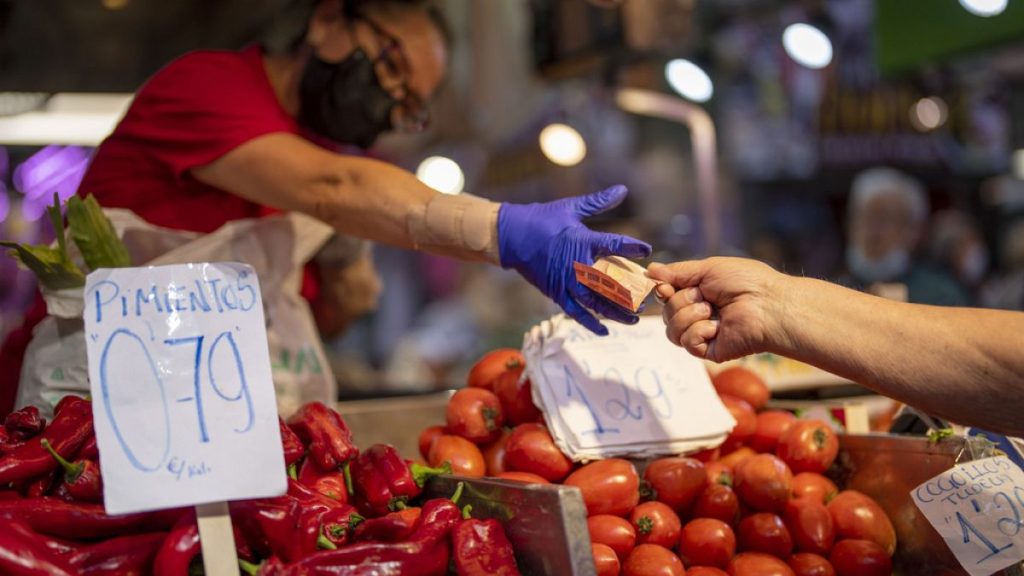Summarize this content to 2000 words in 6 paragraphs in Arabic
Despite a relatively strong employment rate, rising inflation and a high cost of living mean Spaniards are still voting with their wallets.
ADVERTISEMENTCarlos Moreno, affectionately dubbed “The Watermelon King,” became a household name in Spain in 2020, when inflation soared to 15% after the COVID-19 pandemic and the Russian invasion of Ukraine. Nearly two years later his budget-friendly supermarket, La Trastienda, remains a haven for Spaniards seeking affordable groceries. Moreno explains the situation bluntly: “People are not earning enough, so we have to keep lowering prices more and more.”While Spain boasts one of the fastest-growing economies in Europe, many of its citizens are still struggling with the high cost of living. As one shopper tells Euronews: “Considering how things are now, it’s not enough. You want to find a rental apartment, and you can’t afford it.””When you see that a litre of oil in the supermarket costs €10, you just think we all got mad”, another customer says.More jobs, high pricesRecent statistics show that Spain is facing its lowest unemployment rate in 16 years, with more than 21 million people currently employed.Yet according to a research from the National Centre of Sociological Studies, while most Spaniards say the overall economic situation is positive, the economy remains their primary concern.This disconnect between Spain’s general economic progress and negative individual economic circumstances can be explained by wider geopolitical uncertainty, according to Jorge Galindo, deputy director of the Centre for Economic Policy at ESADE Business School. “We’ve gone through a pandemic, a supply chain breakdown. We’ve experienced a war on European soil, which we are still in, and now we have European elections that are more decisive than ever, I would say. And I think this is obvious to everyone”, Galindo explains.Despite positive employment figures, inflation continues to cloud the economic outlook for many Spaniards. As of May 2024, Spain’s inflation rate stands at around 3.6%, a decrease from previous highs but still high enough to be felt in everyday life. “In Spain, until last year, there was a considerable wage moderation precisely aimed at keeping wages at moderate levels so that inflation wouldn’t rise further,” Galindo adds. “And while inflation moderates, there is a perception of a loss of purchasing power.”Yet despite being Spanish voters’ top concern, the economy is conspicuously absent from the European parliament campaign.Spanish parties have largely directed their rhetoric towards other issues such granting amnesty Catalan leaders such as the self-exiled Carles Puigdemont, or corruption allegations against prime minister Pedro Sanchez’s wife, Begoña Gómez. “I think in conversations among families, in bars, the economy has been present,” Galindo tells Euronews. “So the political class as a whole should consider whether to bring it more into the conversations and what to propose.”
rewrite this title in Arabic Economy preys on Spanish voters’ minds – but vanishes from campaign
مقالات ذات صلة
مال واعمال
مواضيع رائجة
النشرة البريدية
اشترك للحصول على اخر الأخبار لحظة بلحظة الى بريدك الإلكتروني.
© 2025 جلوب تايم لاين. جميع الحقوق محفوظة.


